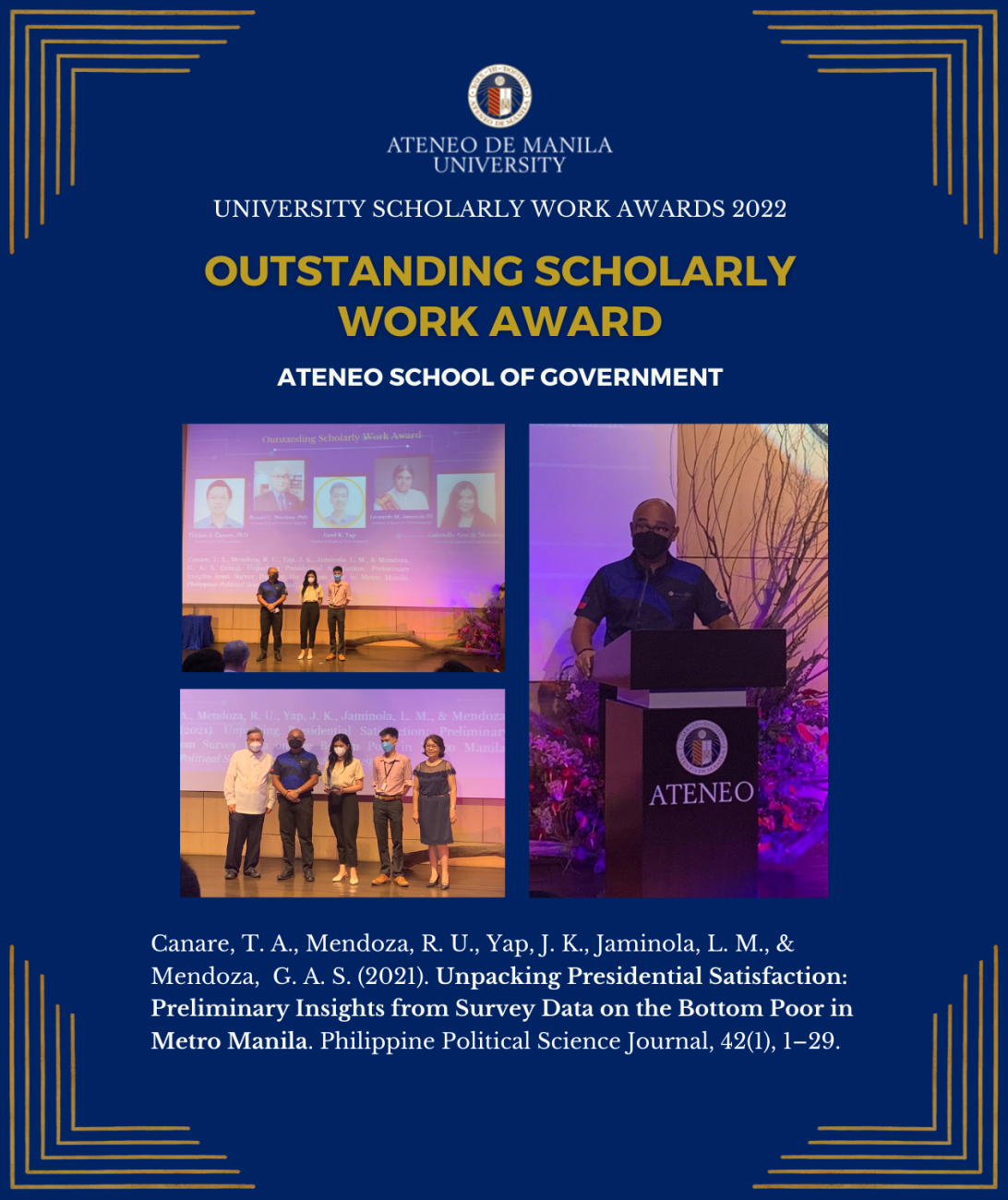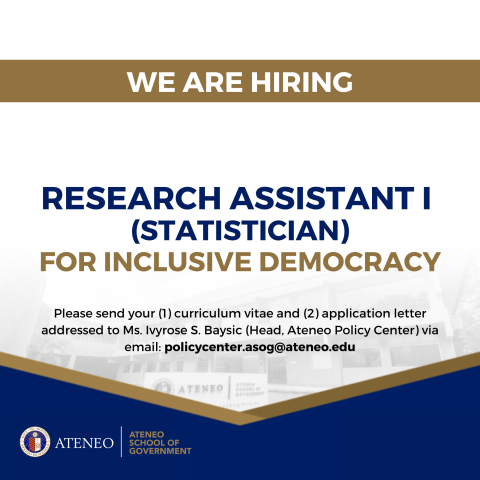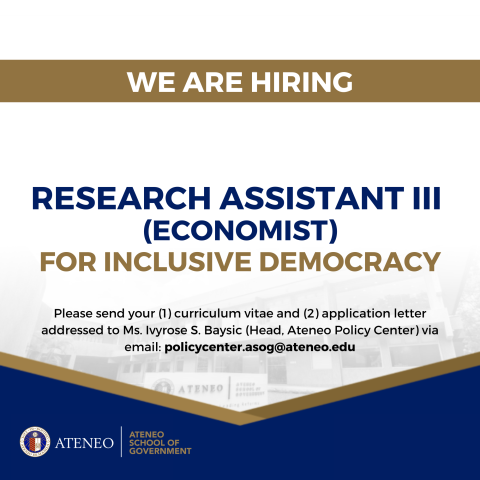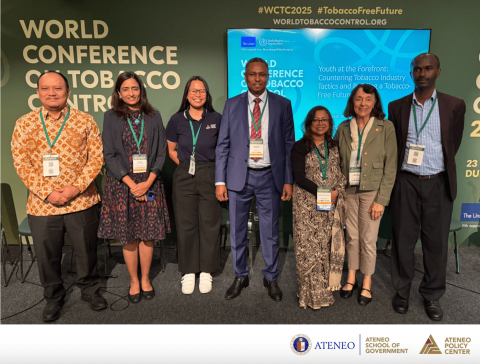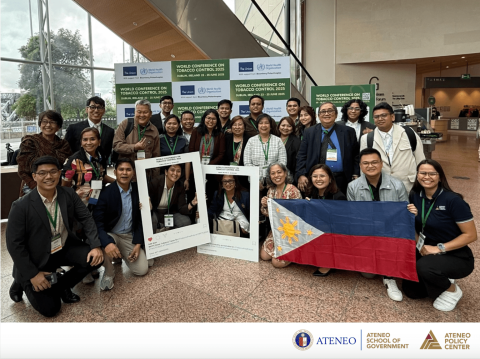Ateneo Policy Center researchers receive Outstanding Scholarly Work Award
09 Jun 2022
On June 6, 2022, Dr. Ronald U. Mendoza, Dr. Tristan Canare, Jurel K. Yap, Leonardo Jaminola, and Gabrielle Ann Mendoza were recognized for their publication titled “Unpacking Presidential Satisfaction: Preliminary Insights from Survey Data on the Bottom Poor in Metro Manila”.
During the University Scholarly Work Awards 2022 held in Ateneo de Manila University, the authors were given the Outstanding Scholarly Work Award for their significant contribution to the discipline.
The publication can be accessed through this link: https://brill.com/view/journals/ppsj/42/1/article-p1_1.xml
Below is a transcript of the acceptance speech delivered by Dr. Ronald U. Mendoza on behalf of the team:
We live in a hyper-connected world where perceptions can be managed and emotions manipulated. Technology can enlighten and lessen the constraints of distance; but it can also obfuscate, mislead and divide. We embarked on this study sometime around 2019, and it was driven by the concern that political approval ratings could be shaped, not by manipulating the survey process and operations, but by hacking the perceptions and emotions of the survey respondents themselves.
We hypothesized that survey exercises could be similar to Keynesian beauty contests. The Keynesian Beauty Contest is an early theory in behavioral finance that describes how short-term stock market fluctuations are not caused by changes in underlying value, but instead by investors attempting to figure out what others think the “average investor” finds valuable.
In our study, we found very little correlation between economic policy outcomes and presidential approval, despite economic outcomes like inflation and wages topping the concerns of citizens consistently across different surveys. Instead, we exposed evidence of herd behavior — individual perceptions of the group’s satisfaction appeared to be linked to a respondent’s own answer on satisfaction. We also found evidence that respondents who are more likely to support President Duterte are also more likely to believe in the fake news that “drug overdose is one of the leading causes for death for the youth”. (It is not, by the way.)
Given disinformation, patterns of herd behavior, and the chilling effect on formal media, the end result is likely a confusing information environment from which to base opinions, and this is what surveys will likely capture. Recent research in other countries has exposed possible perception bias, making some groups of citizens more vulnerable to fake news. In fact, there is strong evidence of more intense dissemination of misinformation and fake news in the run-up to both the U.S. 2016 presidential election and the UK 2019 general election. Further research in this area is critical for democracies to survive under this populist wave.
I thank the young inter-disciplinary team whose energy, expertise and curiosity drove this study and many others like it. (This economist learned a lot from them.) I thank my good friends in the major survey institutions who took our findings in stride (and in fact encouraged me to do more studies like this). I’m grateful to the Ateneo for providing the platform to innovate and create institutions like the Ateneo Policy Center, without which this study would not be possible.
This type of knowledge on new technologies is double-edged: it can be used to manipulate and pacify populations, or it can inform us how we can better capture and empower the true voice of the people. If we approach this area with deep humility and even deeper ethical moorings, then we’re hopeful that in the flood of social and traditional media noise today, we might be able to hear and better understand the voice of our people.

